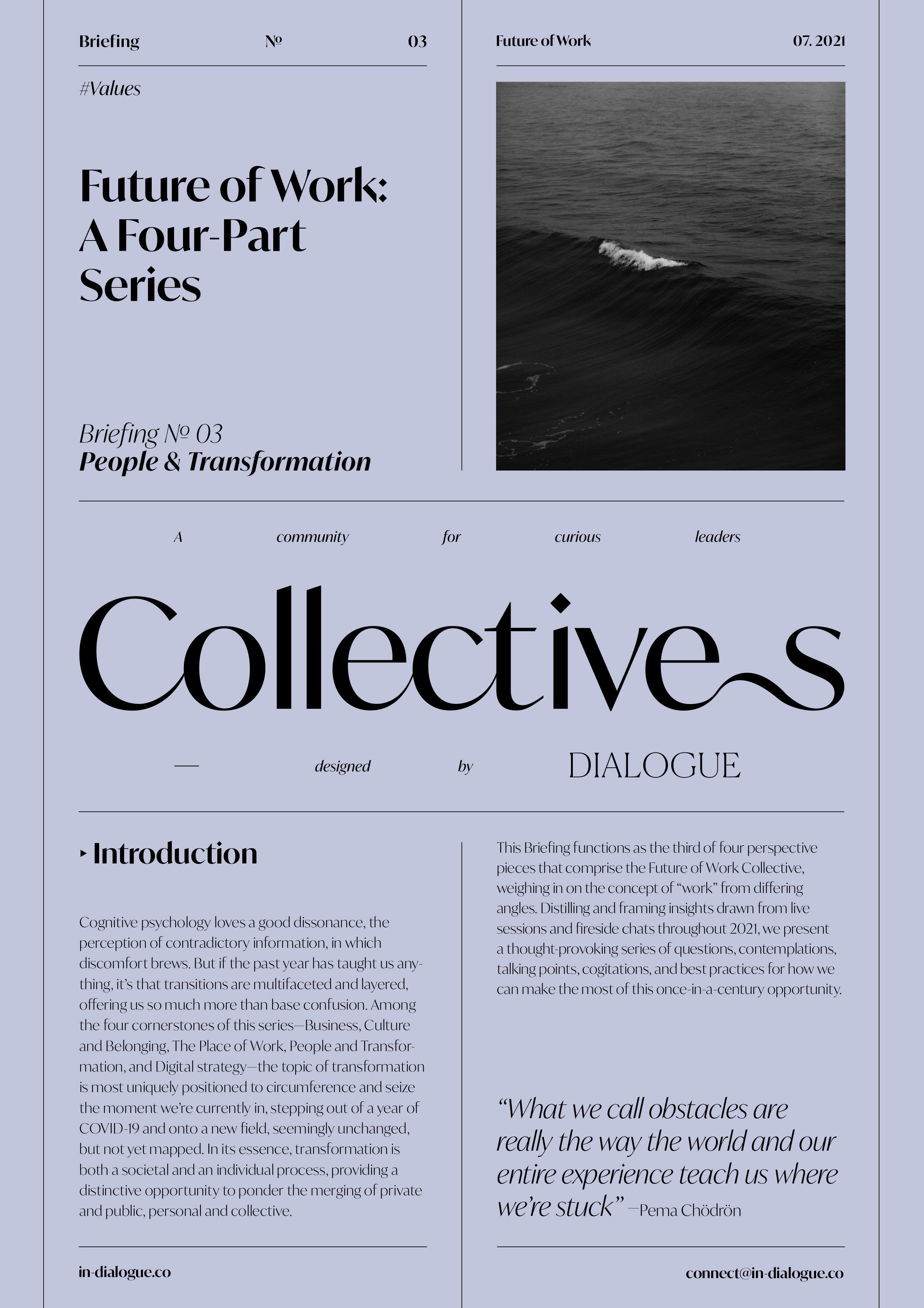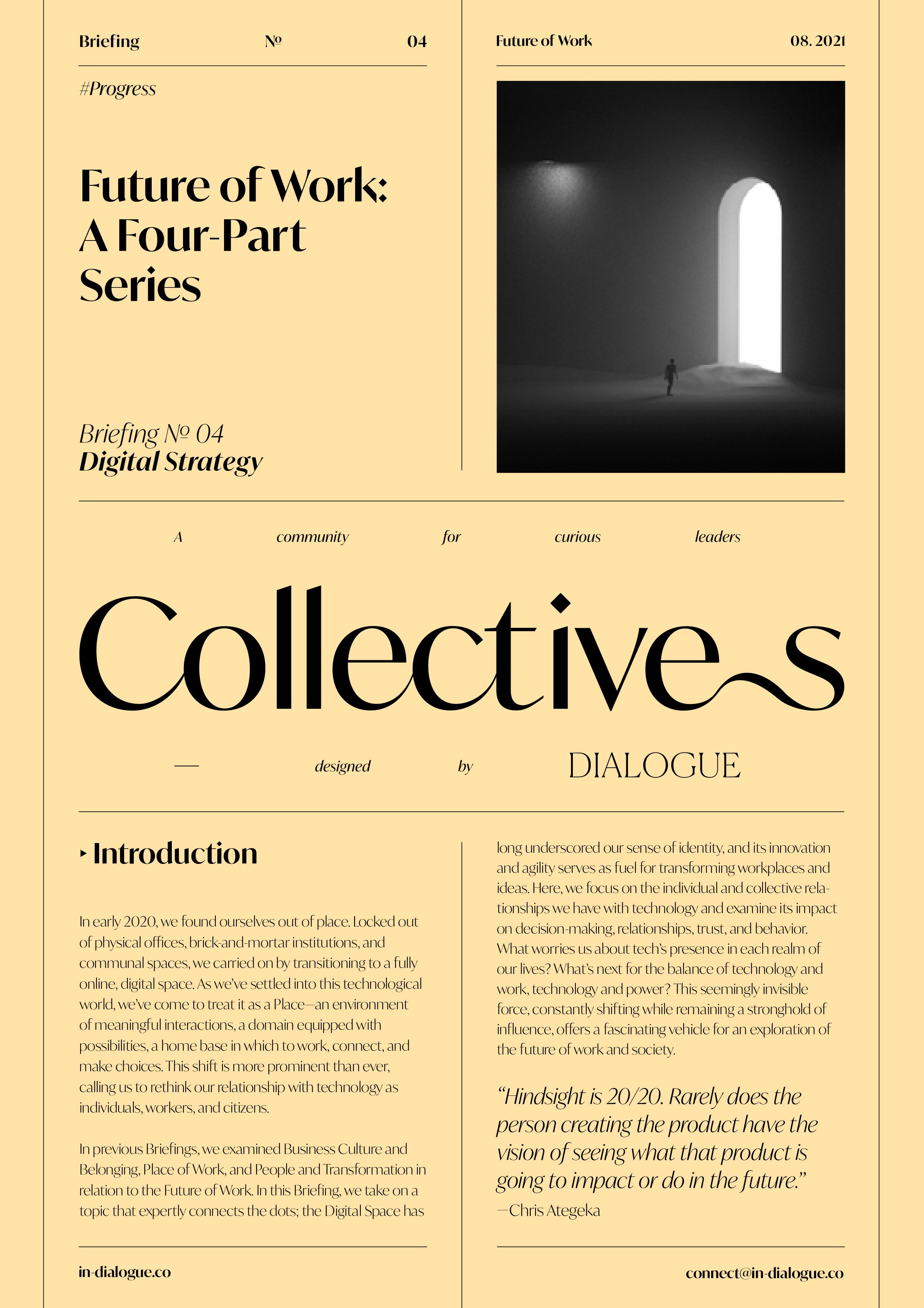Our Briefings
Future of Work: A Four-Part Series
Briefing No.01
Business, Culture, & Belonging
Future of Work: A Four-Part Series
Belonging is the fabric through which we experience the world, conceptualized as a ‘lived, complex process, shaped by the power relationships inherent in social structures, continually renegotiated in contested space. Our innate function as humans has been centered around us being in relationship—to one another, to ourselves, and to our collective existence.
Briefing No.02
The Place of Work
Future of Work: A Four-Part Series
Architecture is not innocent. Because our built environment is so functional, we often make the mistake of seeing it as merely functional, when in fact the mass of bricks, glass, wires, concrete, and steel with which we surround ourselves has a profound effect on our experience of the world. This experience goes on to influence the kind of people we can—and cannot—be. Our built environment encodes deep-rooted cultural beliefs and social biases that in turn are reconstituted in the people who spend their days moving through these spaces.
Briefing No.03
People & Transformation
Future of Work: A Four-Part Series
Cognitive psychology loves a good dissonance, the perception of contradictory information, in which discomfort brews. But if the past year has taught us anything, it’s that transitions are multifaceted and layered, offering us so much more than base confusion. Among the four cornerstones of this series—Business, Culture and Belonging, The Place of Work, People and Transformation, and Digital strategy—the topic of transformation is most uniquely positioned to circumference and seize the moment we’re currently in, stepping out of a year of COVID-19 and onto a new field, seemingly unchanged, but not yet mapped.
Briefing No.04
Digital Strategy
Future of Work: A Four-Part Series
In early 2020, we found ourselves out of place. Locked out of physical offices, brick-and-mortar institutions, and communal spaces, we carried on by transitioning to a fully online, digital space. As we’ve settled into this technological world, we’ve come to treat it as a Place—an environment of meaningful interactions, a domain equipped with possibilities, a home base in which to work, connect, and make choices. This shift is more prominent than ever, calling us to rethink our relationship with technology as individuals, workers, and citizens.




